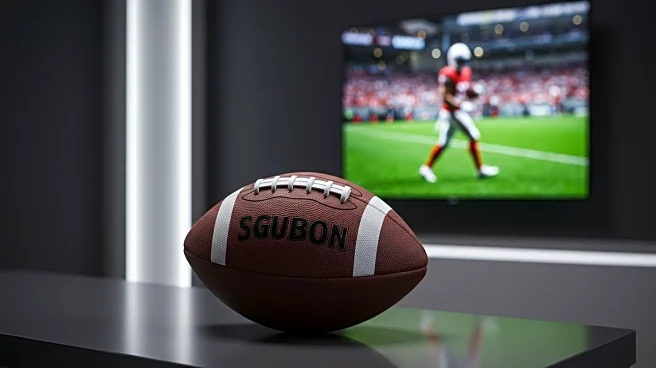What's Happening?
BBC's Match of the Day has entered a new era with significant changes to its format and presentation team. Mark Chapman, a seasoned BBC Sport anchor, is leading the show alongside Wayne Rooney, who has joined as a regular pundit. The program aims to balance familiarity with freshness, incorporating comic-book style graphics and engaging content. Rooney, known for his articulate and insightful commentary, is expected to bring strong opinions and tactical analysis to the show. The changes come as the BBC seeks to attract younger audiences while maintaining its traditional viewership.
Why It's Important?
The introduction of Wayne Rooney as a pundit on Match of the Day marks a strategic shift for the BBC, aiming to modernize its sports coverage and appeal to a broader demographic. Rooney's presence is likely to attract fans of his playing career and those interested in his perspective on current football dynamics. This move reflects the BBC's efforts to remain relevant in a digital age where younger viewers are increasingly turning to online platforms for content. The changes could impact how sports broadcasting is approached, potentially influencing other networks to adapt similarly.
What's Next?
As the new season unfolds, the BBC will monitor audience reactions to the revamped Match of the Day format. The network's strategy includes offering Premier League highlights online earlier than before, which may affect traditional viewing patterns. Rooney's twice-weekly podcast will further explore football debates, potentially expanding the show's reach. The BBC's approach to integrating digital content with traditional broadcasting will be crucial in determining its success in engaging younger audiences while retaining its established viewer base.
Beyond the Headlines
The BBC's decision to modernize Match of the Day highlights the broader challenge faced by traditional media in adapting to changing consumer habits. The network's attempt to blend reliability with novelty reflects a tension between maintaining its iconic status and embracing digital trends. This evolution may prompt discussions on the future of sports broadcasting and the role of digital platforms in shaping viewer experiences.









